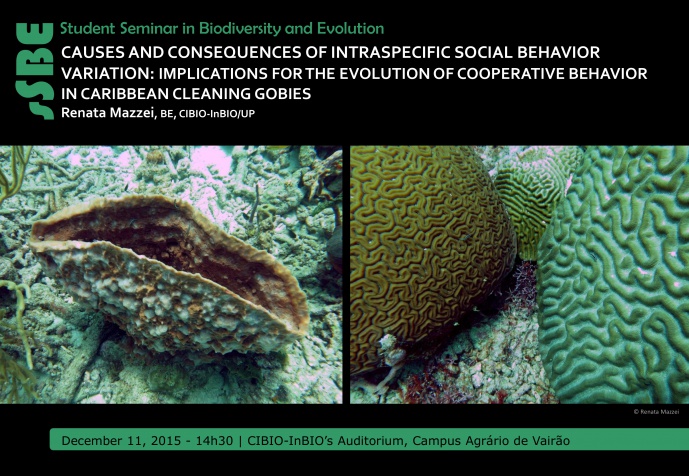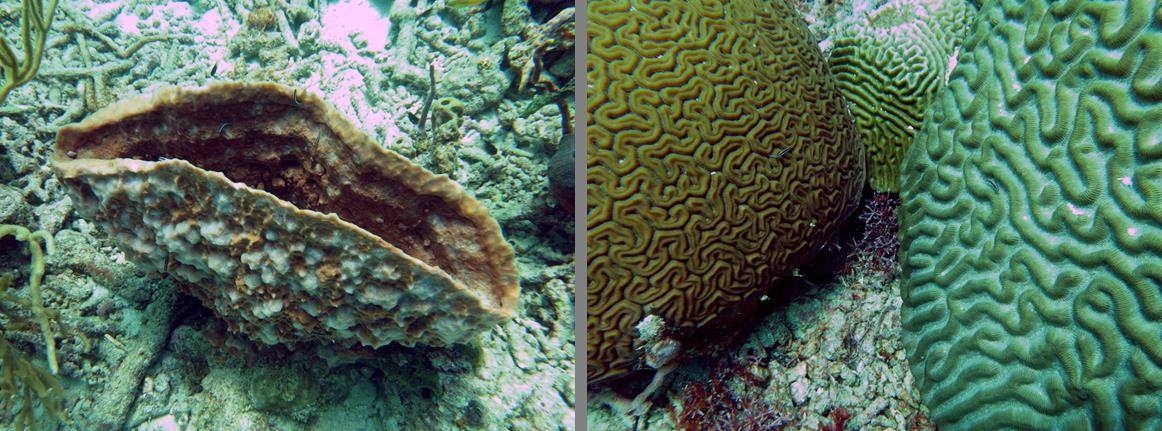CAUSES AND CONSEQUENCES OF INTRASPECIFIC SOCIAL BEHAVIOR VARIATION: IMPLICATIONS FOR THE EVOLUTION OF COOPERATIVE BEHAVIOR IN CARIBBEAN CLEANING GOBIES

STUDENT SEMINAR IN BIODIVERSITY AND EVOLUTION

Behavioral ecologists have been increasingly interested in behavioral variation among individuals of the same population. Variation can originate from deviations from an optimal phenotype of increased fitness or, alternatively, when more than one phenotype is under positive selection. Understanding the underlying mechanisms related to behavioral variation and its fitness consequence for individuals are important in order to be able to distinguish between these two processes. The species Elacatinus prochilos exhibit two behavioral phenotypes: (i) cleaner individuals, which are usually found in pairs or small groups, depend mostly on cooperative cleaning interactions for feeding and (ii) sponge-dwelling individuals, which are organized in larger groups with dominance hierarchies, feed mostly on micro-organisms living inside the sponges’ tissue. We aim to investigate the behavioral flexibility of the two phenotypes and possible physiological mechanisms involved. In particular, we want to investigate if the neuropeptides arginine-vasotocin and isotocin modulate behavioral variation in that species. These two neuropeptides are known to play an important role in fish social behavior, both in intra- and interspecific contexts. In this seminar, I will present some preliminary results and the next steps of my research.
Renata is a marine biologist, with an MSc degree in Ecology from the Federal University of Rio de Janeiro (Brazil). She is currently enrolled as a Ph.D. student at the University of Neuchâtel (Switzerland) under the supervision of Dr. Marta Soares and Dr. Redouan Bshary.
Image credits: Renata Mazzei